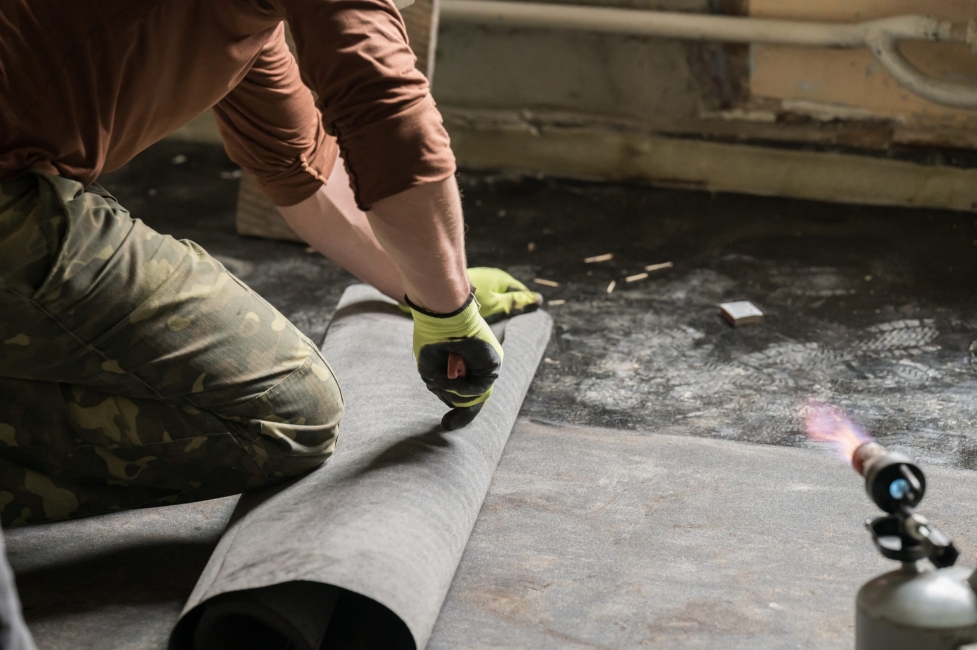You Ask, We Answer: Do I Need to Waterproof My Basement?
Though we’re only a week into fall here in Connecticut, it’s already been a wet one–and with all the rain we’ve had, some Connecticut homeowners may have noticed their basements are feeling more damp than usual. What’s more, some may have seen water seepage or standing water in their basements. If you’ve been noticing your basement isn’t as dry as you’d like it to be, keep reading. Here are some signs you may want to waterproof the basement of your Connecticut basement, and some benefits of doing so.
Signs you may need to waterproof your basement
How to know if you need to waterproof your basement? There are some telltale signs that, when we pay close attention, may offer some important clues.
Use your nose
One of the first ways we begin to notice the basement in our Connecticut homes may need waterproofing is the telltale musty smell. While some home appliances like washers and sinks may contribute to elevated humidity levels in basements, a strong, dank, musty smell in your basement–especially following extended periods of rain–can be a sign that it’s time to waterproof.
Pay attention to recurring puddles
If there’s an area close to the exterior of your Connecticut home that often puddles with water during a rainstorm, you don’t want to write it off as “nothing to see here.” According to americandry.com, “Water intrusion happens through different types of soils at different rates and might reach the basement through hairline cracks and holes. Occasionally, water accumulation leads to a wet basement due to groundwater, surface water, or human-made water sources like leaking pipes.”
What’s more, “Any water source that might not drain correctly off the property could result in leakage or intrusion in your home’s basement. Most of the time, the soil surrounding the basement of your home might be at fault. In such cases, your exterior waterproofing has been compromised.”
Look for rust
When it comes to needing to waterproof a basement, even small signs can give us big clues. Take, for instance, the appearance of rusty nails in your basement: These can be indicators of high humidity levels from hairline cracks that are allowing water to permeate the foundation. If you store any metal items in your basement, check those thoroughly, as well. Areas of rust appearing on metal shelves, for instance, can be a good indicator that your basement isn’t dry enough.
Keep an eye out for water stains
Telltale water stains on basement floors, ceilings, and walls are indicators that it’s time to consider waterproofing. Seepage through your basement foundation can, over time, cause damage to your home’s structural integrity–and since the foundation in the basement of your home literally keeps your home standing, it’s important to take water stains and other clues seriously.
The benefits of waterproofing your basement
Waterproofing your basement has many benefits, not least of which is your peace of mind! Not worrying about your basement springing a leak during every rainstorm can be a huge load off your shoulders. In addition, there are other important reasons to consider having your basement waterproofed.
Reduce the risk of flooding
Having your basement waterproofed can help reduce the risk of flooding–and whether you use your basement as a family room or for storage, we all want to avoid flooding.
Groudworks.com notes, “Waterproofing reduces the risk of flooding by reshaping the way water interacts with your home. French drains can redirect water in safe ways. Waterproofing your foundation will keep more water away from your home, which in turn reduces the likelihood that water will enter your home. And sealing the basement can help keep water out of your basement. Unfortunately, home plumbing leaks are a common occurrence and happen when you least expect them. These leaks can come from any of the many plumbing features throughout your home. Even a small lead can become a basement flood that leads to extensive damage to finishing materials and stored items.”
Prevent mold
Preventing mold from growing in a wet basement is a huge benefit of waterproofing your basement. Mold-related illnesses are linked to “toxic mold” that can grow in wet environments, and this can lead to a plethora of health concerns such as vision changes, ongoing flu-like symptoms, a chronic cough, and more. If you see mold growing in your basement, it’s best to contact a mold remediation specialist first; your Calcagni Real Estate agent can help point you in the right direction.
Mitigate moisture
A waterproofed basement helps to mitigate unwanted moisture, period. From mustiness and mold to leaks or flooding, excess moisture can become a headache when it’s not addressed.
Protect structural integrity
Perhaps most importantly, keeping water out of your basement will help preserve the structural integrity of your Connecticut home. As americandry.com notes, “The number one enemy that threatens this structural integrity is water. Groundwater produces hydrostatic pressure that builds up outside, around basement walls, and under the floor. If you are experiencing wetness or dampness in your basement, it is vital to take action as soon as possible.”
If you’re interested in speaking with a professional to waterproof your basement, contact your Calcagni Real Estate agent for their recommendations. Our decades of real estate experience means we have many local vendors throughout Connecticut that can help you protect and preserve your basement from water!




